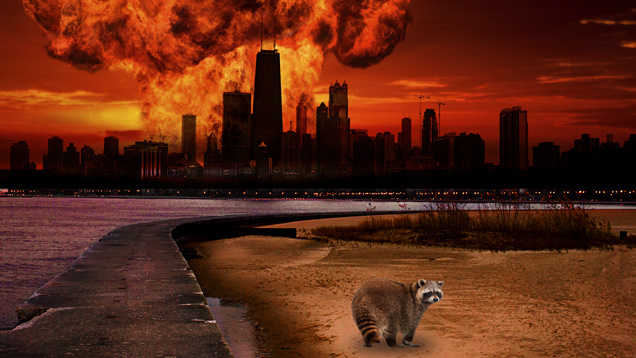Strong vocabulary required
 CREDIT: CANDIS BROSS
CREDIT: CANDIS BROSSWhen the apocalypse happens, what is a little raccoon to do?
Written by local London author Don Gutteridge, The Perilous Journey of Gavin the Great tells the story of a raccoon destined for greatness at the end of his world. Leading a small troop of woodland creatures after a storm and flood rips apart their world, Gavin tries valiantly to hide his fear and uncertainty for the greater good.
This is a book that is clearly written by someone who loves the English language and enjoys exploring all the words it has to offer. This comes at a price, though, as the book is far from being universally accessible. Often the author uses excessively large or obscure words when a simpler one would make more sense.
The biggest offender in this is a character named Quiver, the porcupine. Not only does this character use large words, but usually uses the wrong large words. For anyone who doesn’t have a huge vocabulary, these words might sound right even though the meaning is incorrect.
For someone looking to expand their vocabulary, this is especially misleading as a reader often gains meaning from context. Short of having a dictionary beside you at all times, there is no real way to know the actual meanings of these words. For the average reader, let alone someone with English as a second language, this can be frustrating to say the least.
Another problem with the novel is that it can be, at times, far from politically correct. The decision to make the skittish rabbits French, for example, may have been a play on the old joke that French people are said to be cowards. This tired and inaccurate stereotype is annoying and has no real place in any piece of literature.
That said, there are some interesting points in the tale. The Perilous Journey of Gavin the Great explores a rich world in an alternate universe where humans have mostly died out. Mentions of remnants of the human world abound and create a great amount of curiosity as to what happened and why.
The characters themselves, minor annoyances in speech patterns aside, are also generally very well written. The story flips between past and present in a generally smooth manner, and each glimpse into the past strengthens the experience of the present moments. There is a dark theme of “humans are bad and ruined everything” through the story, but considering the current state of our climate and environment, it’s hardly surprising that a story from the perspective of animals would take this view.
If you can read it, The Perilous Journey of Gavin the Great is an interesting story that takes place in a vibrant, yet dismal, setting. Exploring the idea of unwanted responsibility, the balance between honesty and hope and the consequences of human action, the story has a lot to offer. The vocabulary needed to read it, however, may take this fantastic story far out of the reach for the average reader.














